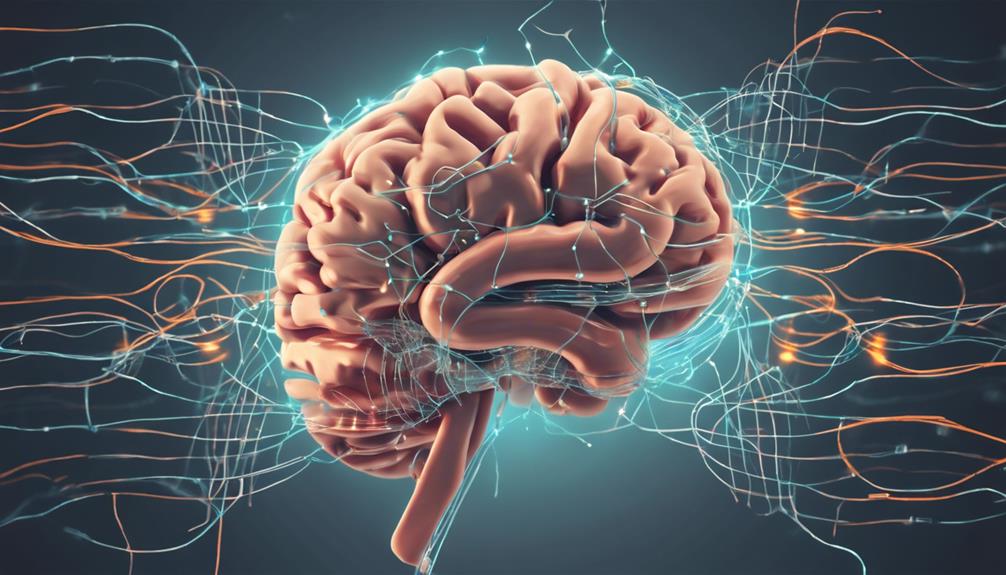Recent research highlights the significant benefits of hypnosis for chronic pain management. Through its influence on mind-body connection, hypnosis alters pain perception and enhances coping strategies. It has shown effectiveness in reducing pain intensity, inducing relaxation, and improving overall quality of life. Mechanisms include modulation of brain activity and cognitive-emotional regulation. Patients experience sustained pain relief, enhanced coping mechanisms, and improved psychological well-being. Compared to traditional treatments, hypnosis offers a non-invasive, low-risk intervention with transformative potential. Future research aims to integrate technology, improve hypnotic efficacy, and explore innovative avenues for pain management.
Benefits of Hypnosis for Pain Relief

Utilizing hypnosis as a complementary therapy has shown promising results in providing effective pain relief for individuals experiencing chronic pain. The mind-body connection plays a crucial role in pain perception, and hypnosis is believed to influence this connection positively.
By tapping into the subconscious mind, hypnosis can help individuals alter their perception of pain, leading to a reduction in its intensity and frequency. This alternative therapy aligns with the principles of holistic healing, focusing on treating the individual as a whole rather than just addressing symptoms.
Research suggests that hypnosis can not only alleviate physical discomfort but also contribute to psychological well-being by reducing anxiety and stress levels commonly associated with chronic pain conditions. Through relaxation techniques and suggestive therapy, hypnosis aims to empower individuals to take control of their pain management.
Effectiveness of Hypnosis on Chronic Pain
Research findings have consistently demonstrated the effectiveness of hypnosis in managing chronic pain, highlighting its potential as a valuable therapeutic approach for individuals seeking relief from persistent discomfort.
Pain perception is a complex interplay of sensory and emotional components, and psychological interventions such as hypnosis can modulate these aspects to alleviate suffering. Studies have shown that hypnosis can effectively reduce pain intensity, frequency, and overall perception in individuals with chronic pain conditions.
By inducing a state of focused attention and relaxation, hypnosis can help individuals shift their cognitive focus away from pain sensations, leading to a decreased perception of discomfort. Furthermore, hypnosis has been found to enhance coping strategies and improve overall quality of life for chronic pain sufferers.
The integration of hypnosis into pain management plans offers a non-invasive and drug-free alternative for individuals looking to effectively manage their symptoms and improve their well-being.
Mechanisms of Hypnosis in Pain Management

Understanding the underlying mechanisms through which hypnosis influences pain perception is crucial in elucidating its efficacy in chronic pain management. Research suggests that hypnosis can modulate brain activity in regions associated with pain processing and perception. Functional MRI studies have shown that during hypnotic analgesia, there is a decrease in activity in the primary somatosensory cortex, anterior cingulate cortex, and insula, which are key areas involved in pain perception.
Additionally, hypnosis has been found to alter connectivity patterns between brain regions involved in processing pain signals, resulting in a reduction in the subjective experience of pain.
Furthermore, hypnosis may influence pain perception through cognitive and emotional mechanisms. By altering attentional focus, increasing pain tolerance, and promoting relaxation, hypnosis can lead to a shift in the cognitive appraisal of pain stimuli. This cognitive modulation, coupled with the emotional regulation that hypnosis can induce, may contribute to the overall effectiveness of hypnosis in chronic pain management.
Comparison With Traditional Pain Treatments
Hypnosis for chronic pain management presents a distinct approach that warrants comparison with conventional pain treatments. When evaluating hypnosis against traditional pain treatments, several factors come into play. Firstly, cost-effectiveness is a critical consideration. While traditional pain treatments like medications and surgeries can incur substantial costs, hypnosis sessions may offer a more economical alternative over the long term.
Additionally, patient preferences play a significant role in treatment adherence and satisfaction. Some individuals may prefer the non-invasive nature of hypnosis compared to the potential side effects of medications or invasive procedures associated with conventional treatments.
Moreover, the comparison extends to the side effects and treatment outcomes. Traditional pain treatments often carry a range of side effects, such as nausea, dizziness, or dependency issues with medications. In contrast, hypnosis is generally considered a low-risk intervention with minimal adverse effects.
When examining treatment outcomes, studies have shown that hypnosis can lead to significant pain reduction and improved quality of life for individuals suffering from chronic pain. Therefore, considering factors like cost-effectiveness, patient preferences, side effects, and treatment outcomes is essential when comparing hypnosis with traditional pain treatments.
Long-Term Effects of Hypnosis for Pain

A comprehensive examination of the efficacy of hypnosis in managing chronic pain must consider its long-term effects on patients' well-being and pain levels. Research indicates that hypnosis can lead to sustained improvements in pain perception and psychological well-being over extended periods. Studies have shown that individuals who undergo hypnosis for chronic pain management often experience reduced pain intensity and frequency in the long run.
The long-term effects of hypnosis on pain perception are thought to be linked to its ability to alter neural pathways involved in pain processing. By influencing these pathways, hypnosis can help individuals perceive pain differently, leading to decreased sensitivity and improved pain tolerance over time.
Furthermore, the positive impact of hypnosis on psychological well-being can contribute to long-lasting benefits for individuals dealing with chronic pain. Improved mental health, reduced stress levels, and enhanced coping mechanisms are among the psychological outcomes associated with long-term hypnosis therapy for pain management.
Patient Experiences With Hypnosis Therapy
Exploring patient encounters with hypnosis therapy reveals valuable insights into the practical application and subjective impact of this treatment method for chronic pain management. Patient testimonials often highlight the transformative potential of hypnosis outcomes in managing chronic pain. Many individuals report significant improvements in pain levels, increased relaxation, and a sense of empowerment over their condition.
Personal anecdotes frequently underscore the therapy success experienced through hypnosis, showcasing how it can positively influence one's perception and experience of pain.
Patients commonly describe feeling more in control of their pain, experiencing reduced reliance on medication, and improved overall quality of life. These firsthand accounts shed light on the holistic benefits of hypnosis for chronic pain management.
Furthermore, insights gleaned from patient experiences can inform healthcare providers about the nuanced ways in which hypnosis can be integrated into comprehensive pain management strategies. By understanding and incorporating patient perspectives, practitioners can enhance the effectiveness of hypnosis therapy in alleviating chronic pain.
Future Directions in Hypnosis Research

As researchers delve deeper into the realm of hypnosis, the focus shifts towards identifying innovative avenues for advancing the understanding and application of this therapeutic approach in chronic pain management. One promising future direction in hypnosis research involves the integration of technology, particularly exploring the use of virtual reality as a tool to enhance the hypnotic experience and efficacy in pain management. By creating immersive virtual environments, researchers aim to enhance the hypnotic suggestions and increase the overall effectiveness of hypnosis in alleviating chronic pain.
Furthermore, future studies in hypnosis for chronic pain management may explore the intricate relationship between the mind and body, emphasizing the importance of the mind-body connection. Incorporating mindfulness practices into hypnosis sessions could potentially amplify the benefits of hypnotic interventions by promoting relaxation, awareness, and acceptance of pain sensations. Understanding and harnessing this mind-body connection could open up new possibilities for enhancing the therapeutic outcomes of hypnosis in chronic pain management, paving the way for more effective and holistic treatment approaches.
Frequently Asked Questions
Can Hypnosis Be Used for Acute Pain Relief as Well?
Hypnosis has shown effectiveness in providing acute pain relief. It can yield immediate results by helping individuals manage pain perception. While the duration of hypnosis effects varies, it has been demonstrated as a promising modality for acute pain management.
Are There Any Potential Side Effects of Hypnosis for Pain Management?
When considering hypnosis for pain management, potential risks must be assessed. Safety concerns include adverse reactions and long-term effects. It is crucial for practitioners to thoroughly evaluate individuals for any contraindications before applying hypnosis as a pain management technique.
How Long Does It Typically Take to See Results With Hypnosis Therapy?
In hypnosis therapy, the timeframe to see results varies based on individual factors. Typically, patients may experience benefits in a few sessions, but full relief can take several weeks. Success rates and patient experience are influenced by expectations and commitment.
Is Hypnosis Suitable for All Types of Chronic Pain Conditions?
Hypnosis can be suitable for various chronic pain conditions, with effectiveness varying among individuals. Factors such as personal preferences and responses to alternative therapies play a role in determining the suitability of hypnosis for managing chronic pain.
Can Self-Hypnosis Techniques Be as Effective as Guided Hypnotherapy Sessions?
In comparing self-hypnosis to guided hypnotherapy for chronic pain management, exploring their relative effectiveness is essential. While guided sessions offer personalized guidance, self-hypnosis empowers individuals to practice independently, potentially providing convenience and autonomy for sustained benefits.
Conclusion
In conclusion, the latest research on hypnosis for chronic pain management suggests that hypnosis can be an effective and beneficial treatment option. Studies have shown that hypnosis can help reduce pain intensity and improve overall quality of life for individuals suffering from chronic pain.
The mechanisms of hypnosis in pain management are still being studied, but the evidence so far indicates promising results. Further research is needed to explore the long-term effects and potential applications of hypnosis therapy in pain management.
